#parallellis
Text
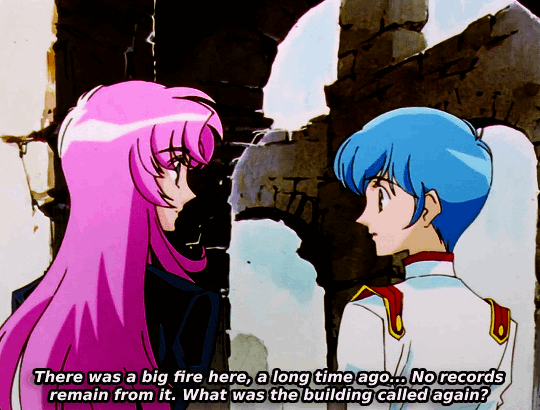
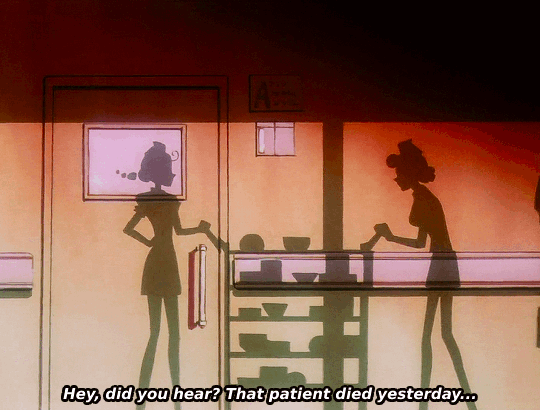
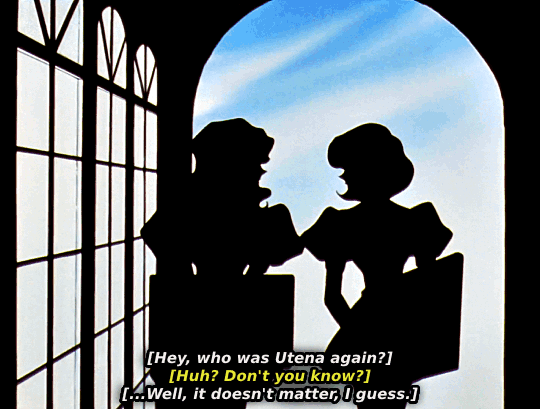
REVOLUTIONARY GIRL UTENA
↳ EPISODE 23 / EPISODE 29 / EPISODE 39
#utena#revolutionary girl utena#kunihiko ikuhara#animeedit#oldanimeedit#utena tenjou#ruka tsuchiya#souji mikage#utenaedit#shoujo kakumei utena#anime#sku#rgu#utenagifs#ellisgifs#rgu rewatch#utenaedits#having Thoughts#Parallellis#queue#Ikuni parallels
707 notes
·
View notes
Text
I really would like to say something about Loki Season 2, write some analysis, whatever, but... The whole thing is just making me feel TIRED.
Guys. You can do better than this. I promise, you can do better than this. In terms of general storytelling, but especially where queer representation is concerned. Why did you even think that there would be queer rep in the first place?! For fuck's sake.
#season 2 was actually quite nice...#but not worth the effort of watching season 1#and it's still all very hollow#the whole show is just hollow I have no other ways of describing it#they took a story that had SO MUCH POTENTIAL#and then made the most boring choices every single time they could make a choice#didn't put any effort into fleshing out any of the new characters#nor to get Loki sound like himself from the movies#connect his quest to the one he had in the MCU in any way shape or form#and I don't want to shit on anyone's enjoyment of media that would be stupid#BUT WHY IS THIS GETTING PRAISE?!#WHY IS IT PUT ON THE SAME LEVEL AS GOOD OMENS OR OUR FLAG MEANS DEATH?!#which like#actuall make sense#storytelling wise#the only value this show has is the one that people brought in when they were hallucinating their own parallelly of watching this#as I was saying we can do better#I am just annoyed because if you think that THIS is good#then what does that say about our collective basic media literacy skills#and standards#they can't be possibly THIS low#Loki show#superheroes#MCU
3 notes
·
View notes
Text
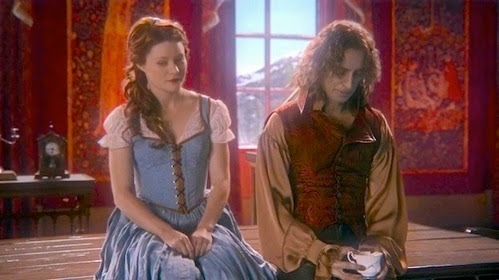
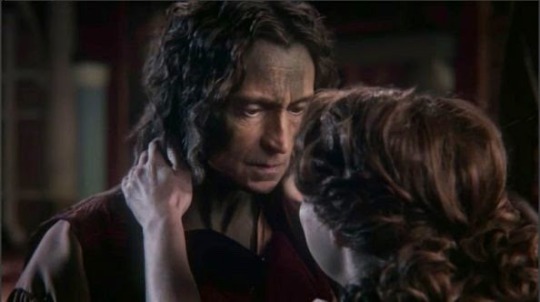
Clapping and cheering and yelling
#OUAT#bad news guys it didn’t work out but there’s hope for him#Belles a little stupid but she’s got the spirit#mmmm I love when fictional men have self esteem issues#hope he overcomes it. love him#I’m watching him beat a man to death rn#while he has a breakdown parallelly in the fantasy world#oh boy. things are looking grim for my special little guy#zoeposting
2 notes
·
View notes
Text
love when im like i Don't Need To Color This. It's Vibes It's Fine and then i immediately

anyways-
#jackals barks#HFFK#also im listening to sparkbird while coloring this and OUGH ough. fuck#'but i do believe / theres beauty within / thats why i cant stop / picking my skin / digging for buried treasure'#'one small sound / one small bite / one tomial tooth / one loggerhead shrike must skewer / my invertebrate doppelganger / on barbed wire-'#'-a parallel universe / my tongue parallelly bleeds'#LIKE SIR I CANT BE NORMAL
1 note
·
View note
Text
First time
Pairing: Astarion x Gn!Reader.
Summary: a little throwback to when Astarion received aftercare for the very first time — from you.
Warnings: Fluff. Suggestive. Mentions of abuse/trauma. Inability to manage displays of affection. Vampire bite. Blood sucking. Aftercare.
Word count: 2,3k
Masterlist.
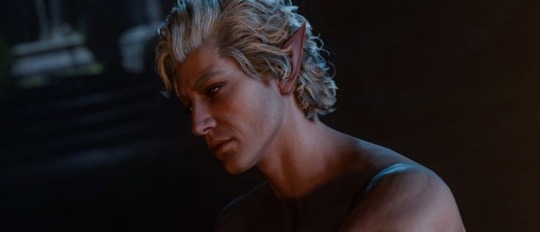
Looking back in time and examining your relationship with Astarion now and several months ago, you realize how much progress you have made together. Astarion, especially.
Now, he trusts, loves, and cherishes you effortlessly, finding comfort in the familiarity of your presence. Your intimate moments are a source of joy, marked by the tenderness of your comforting kisses and caresses. He's accustomed to it all.
But... Before, things were different.
Sometimes you recall the times when he shamelessly hit on you, and you're surprised that you deluded yourself that it was real interest, at least in the beginning — he used it as a defense mechanism, it was something rooted in him.
As for your first night together, it was... Well, it was definitely memorable.
———
“...Are you okay?" you asked, still out of breath from the passion you two just shared. The air in the tent was humid — you had quite the experience.
He turns to you, that usual smirk of his playing on his lips. “W-.. A-ha! Why wouldn't I be okay? I could finally taste you. Of course I'm okay.”
You gave a slight nod, lying down again. Astarion had already sat up, and in that position you could capture even the smallest details of that huge scar on his back you noticed earlier while you undressed him — but you didn't dare to ask about it yet.
In a brief spell of silence, you found yourself teetering between the realms of dreams and reality. The tranquility was interrupted by the sound of a forced cough. Abruptly, your eyes opened to the sight of Astarion staring down at you, fully clothed, wearing a somewhat snarky expression.
He looked anxious. Not his usual self, for sure.
In your half-asleep state, seeing him like that worried you. Were you talking in your sleep, by any chance? Were you drooling?
“What's— What's wrong?”
He raised an eyebrow, shifting his weight from hip to hip.
“It's kind of late, darling.” his tone had something almost impatient about it.
“I guess it is.”
Poor, oblivious you.
In that moment, you witnessed such confusion in him that it made you blink a few times; you couldn't wrap your head on where he was trying to go with that.
Parallelly, he couldn't understand you. Usually he offered his body, the other person took advantage of it and then… They left. But you? You were still there. And you hadn't even bothered to get dressed.
It was natural finding it a bit peculiar to see you still in his tent several moments after your climax. Was there a silent invitation for another round lingering in the air? Was he supposed to read between the lines?
A few moments of silence lingered as he gazed at you, perplexed. You returned the same gaze until a subtle shift in your expression hinted a realization –
Perhaps he sought some personal space.
Feeling a tinge of embarrassment, you blushed, not wanting to come across as intrusive.
“You want me to go?”
He's lost in his thoughts and, very unlikely of him, at a loss of words, apparently. It seems like his brain was trying to process too many informations at the same time, resulting in him going silent.
But you, at the time, as accustomed as you were and still are to gentle kissing and lingering caresses after the thrills of sex, recognized his behavior as annoyance towards your presence; therefore feeling unwanted you took it personally. Still, you didn't want to be on his tail.
“...Alright.”
You began to gather your clothes rather quickly, which were scattered here and there around the tent. As you absentmindedly buttoned your shirt, his gaze was fixed on you.
“See you tomorrow, Astarion. Thank you for... This. Good night.”
The fact that you thanked him for having sex with you baffled him enough, but never as much as the little kiss you planted on his cheek before leaving his tent. Simple and tender.
The tent flap swayed back and forth gracefully, following the lead of the gentle wind on a quiet night. His gaze lingered on the space where you had just been, right in front of him.
What was that?
He tried to think clearly.
During this shared night, he found no compulsion to wander far, to delve into the empty, dark yet strangely comforting realm he usually retreats to in moments like these — while to no one's surprise he effortlessly entered that familiar mental space without conscious effort.
He had sex with you because he knew no other way to gain your trust and protection. That looming, self-loathing sensation is still there, clawing under his skin and nibbling at his self respect with a trillion sharp teeth — but that kiss... That simple kiss on the cheek made him feel something he can't quite define. It's new and scary.
He wondered if it was really necessary to do all this to have your support in this journey.
He was too accustomed to the life he led under Cazador's command — seducing to survive. You're the first person he's willingly had sex with since escaping Cazador and he wasn't even fully into it; the thought upsets him.
Perhaps he's overthinking a simple kiss on the cheek.
But was it that simple?
The thoughts reached a deafening crescendo, and, as if emerging from a dream, he blinked several times and looked around, dazed. He needed to rest.
———
It's been a while since your sexual encounter. Astarion has not failed to make some teasing remarks about it every now and then, alluding to a second chance to indulge in each other again.
That second opportunity occurred, but several days after the first. It happened when you told him that he could feed on you that night and agreed that you would meet at your tent.
Astarion came to visit you late in the evening, when almost everyone had already retired to their tents. He found you reading a book, lying on your stomach.
“Hello, darling.” he greets you, his voice a sound that wakes you from your trance from the huge book you were absorbed into.
“Hi,” you reply distractedly, turning quickly towards him and taking the opportunity to stretch. You pushed the book aside, closing it.
It seemed that over the course of the day you had forgotten that you had proposed him to feed on you — the look of surprise on your face that dissolved rather quickly gave it away. You were visibly tired, he noticed. However, as soon as your eyes met his, you offered a gentle, sheepish smile — the kind reserved for moments when words become wearisome.
Allowing him to feed on you even when it seemed that all you wanted to do was rest stirred a semblance of life in his chest.
You sat up, adjusting comfortably. “I’m ready.” you informed him, moving the fabric of your clothing away from your neck to expose it to him.
Astarion stared at you, and for a moment he didn't say or do anything. He wanted to do something different this time, not just bite you, suck your blood, and then return to his tent. No, he wanted to try something new.
Instead of bringing his mouth to your neck, he brought it to your lips. He kissed you slowly, introducing his tongue in your mouth tentatively — but when he felt the natural tension vanish from your body, he brought his hands to your waist and deepened the kiss.
Astarion felt you melt in his arms, remembering how you had let yourself go the same way a few nights before.
Your hands came up to rest on his shoulders; Astarion leaned towards you until you were laying down. His lips separated from yours with a pop and only then did he place them on your neck. But even there, before sinking his sharp fangs into your skin, he planted a few kisses here and there.
He persisted, leaving a trail of kisses that moistened your neck. His lips traced a path to a point just under your ear, where he planted an open-mouthed kiss. Suddenly, you experienced a sharp, dull pain spreading rapidly in that spot. You hissed, clutching his shirt tightly and exhaling sharply; you heard a soft hum coming from him as he immediately began swallowing mouthfuls of your warm, succulent blood.
That little kissing ritual was to thank you, in a way. You were and have always been available to him, despite his bad temper and grumpy tendencies.
As he fed, the movement of one of your hands moving from his shoulders distracted him.
Next, he felt the touch of a gentle hand running through his hair.
He was so focused on sucking your blood that he didn't even notice for the first few seconds. Accordingly, he felt the distinct touch of your warm hand move across his cheek and cupping it.
What are you doing?
Your tender touch left him puzzled. Akin to a feather's caress, it cradled him in a way that stirred a desire more profound than any teasing or vulgar contact could evoke.
You felt him grunt against you, the guttural sound vibrating through your being.
Those touches reminded him of that kiss you had printed on his cheek after your night together; his stomach twisted in contrasting sensations.
He pulled away from you after a few seconds, but your caresses didn't stop. Your blood dripped from the corner of his mouth, his hair disheveled as a result of your fingers combing through his curls.
“What's up?” you asked, trying not to giggle at the fact that he looked like he had just woke up. You reached an hand in his hair to fix some wild curls back in their place.
He didn't answer at first, but then he shrugged slightly.
“Nothing.” he muttered softly, his body moving in your direction almost without his control. He was experiencing new things within himself, things he had never felt before.
A desire. A genuine desire, nothing that had to do with that of a few evenings prior. Despite his less-than-noble intentions previously, he openly acknowledges being drawn to you. However, unlike before when intimacy served a strategic purpose, this time things are different.
He craves you spontaneously, yielding to the impulse of the moment. While leaning in for a passionate, bloody kiss on your lips, he pledges not to flee from this moment or from you. No mental refuge exists now, just two bodies entwined and two souls merging into one another.
The tenderness of that kiss amazed you.
You feel his arms wrap around your waist to lift you up in his lap, kisses trailing down your neck to suck briefly on the holes he left in it.
One thing led to another and a few minutes later, you were both naked and nestled into each other.
Astarion was thrusting his hips into you breathlessly, continuing just to try drawing another orgasm out of your guts before you pull apart. This has been going on for a while now; he has absolutely drained you. In every way.
You had noticed a certain vigor in him, which was not given solely and exclusively by the fact that he had just made an excellent reserve of blood. He felt alive, present, current. He was there with you, made a puddle in your arms while you cradled each other through your collective ecstasy.
If the first time his gaze seemed empty and absent, often far from yours, now it was bright and lively, never too distant from your own. It was impossible not to notice the difference.
When the rush of pleasure died down, he pulled away from you slowly, almost reluctantly. He came down from above you to lie next to your body; both sweaty and out of breath, you remained silent for several minutes.
You anticipated for him to leave as soon as possible, given the discomfort he displayed that evening when you prolonged your stay just a bit, expecting to spend some time together after your sexual activity.
But he remained there, next to you, his expression thoughtful but relaxed. You assumed he didn't want to leave just yet.
However, just as that pleasant, inviting thought etched itself into your beliefs, he sat up and reached for his undergarments dispersed around the tent.
You frowned, sitting up and reaching for his arm without even thinking twice.
“Wait, wait... Why don't you stay?”
You didn't fail to catch him off guard this time, too. Your voice had such a sweet, pleading edge to it.
“We can talk, we can... We can even just be silent together. Do you want to?”
He guessed it couldn't hurt to try.
He lay down again, putting his clothes aside. He saw you smile from the corner of his eye as you did the same, this time lying on your side.
One of your hands carefully came up to caress his chest tentatively. The tips of your nails scratched his skin deliciously, sending shivers down his spine. His eyes fluttered and he looked up at you; he was confused, disorientated.
“What are you doing?”
“Do you not like it?”
“...I do.”
“Then just enjoy it.”
He followed your advice.
In that instant, he embodied a certain beauty that surpassed his usual charm. Surrendering to your soothing enfolds, he reached a blissful state, breaking down every wall and baring his soul to you. Every muscle in his body eased into relaxation. He scoots closer until he's basically all curled up in your arms, melting against your comforting heat.
That night, he shared a peaceful slumber with you, and to this day, he never ceases to express his profound gratitude for the invaluable gift of your love.
You made his dead heart start beating again.
#astarion#astarion bg3#astarion x reader#baldur's gate 3#bg3#astarion x tav#astarion x gender neutral reader#astarion x gn reader#astarion x gn!tav#astarion fluff#astarion fic#astarion fanfic#astarion x fem reader#astarion x male tav#astarion x male reader
2K notes
·
View notes
Text
There are a million first kiss fics for Stucky but hear me out:
Thee best one would actually be-
Young Steve and Bucky play wrestling and Bucky straddling Steve and landing fake punches on Steve's face as Steve fake punches back.
Steve grabbing Bucky's collar and fake headbutting him, but they both turn their heads to the side and their lips end up crashing into each other. Steve lip starts bleeding a little and they freeze.
Cut to the TWS scene where Bucky pauses in the middle of beating Steve up.
Cut back to younger Steve trying to placate Bucky fussing over his lip by accidentally saying that he liked it, resulting in them awkwardly staring at each other for several moments.
Cut to Steve suddenly falling out of the helicarrier, and Bucky diving in after him.
Cut back to younger Bucky, leaning forward jerkily.
Cut to WS Bucky performing CPR on Steve after dragging him ashore. He feels for Steve's pulse and we hear it too.
Cut back to younger Steve and Bucky closing in on each other, their hearts beating louder. Together.
They kiss in the past, and parallelly Bucky performs mouth to mouth resuscitation on the present Steve.
Steve wakes up drowsily, and sees Bucky from his pov
The older Bucky is replaced by the younger Bucky in his vision, but they're still at the Potomac.
164 notes
·
View notes
Text
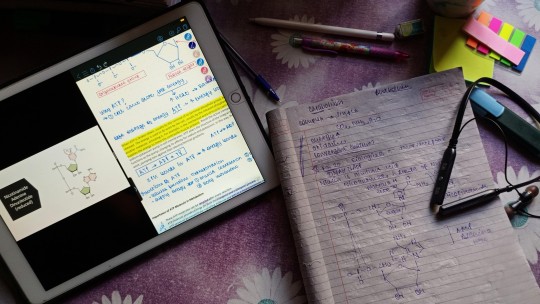
19-20/25 Days of Productivity
Started Chemistry and Metabolism parallelly and both of them are proving really tough to deal with, but I suppose once I clear the basics it will a smooth ride, right?
🎧 : Breathless, Shankar Mahadevan
#sorry for not posting yesterday. did not had any postable pictures :/#original#25 dop#stem academia#chaotic academia#heypeachblossom#studyblr#problematicprocrastinator#chazzastudiesalevels#heydilli#heygather#30dopwithcleo#heyjulissa#heychemblr#heycoral#heychenleyah#meestudies#septemberstudies#durhamstudies#linksstudyblr#desi studyblr#indian aesthetic#university studyblr#biochemistry#chemistry#college studyblr
72 notes
·
View notes
Note
How does AGSZC show their affection?
Angeal: Cooking and gift-giving. His family didn't have much when he was younger, so his mother would often lift his spirits by cooking for him and concocting whatever homemade toy she could. This carried on into how Angeal shows his love in adulthood, and you'll find him whipping up his loved ones' favorite dishes. Whenever he buys something useful for himself, he'll often buy an extra and give it to a friend "because I thought you would need one too."
Genesis: He's notoriously arrogant and loves to receive love more than return it. When he cares for someone, he swallows his pride and showers his loved one with genuine compliments, soft words and affirmations. Genesis is good with words and often knows just what to say to show someone he cares for them. He won't hesitate to lend an ear and advice when his loved ones need it.
Sephiroth: Quality time. He's a busy man and an introvert, so if he's taking the time to actually spend time with someone and hang out, it means he likes you. Parallelly, he feels loved when people go out of their ways to spend time with him. He values friendship.
Zack: Physical touch. His brain can't comprehend how else to show someone he cares if not by pulling them into a bear hug, ruffling their hair, patting them on the back, holding their hand etc etc.
Cloud: He shows his affection by going out of his way to help those he cares for. Whether this is by doing favors, helping them with a difficult task or doing the hard work for them, it doesn't matter. If he loves someone, he's there for them.
#ff7#ffvii#final fantasy 7#sephiroth#ffvii crisis core#genesis rhapsodos#final fantasy vii#final fantasy#angeal hewley#ff7r#zack fair#cloud strife#ff7 crisis core#final fantasy 7 crisis core#soldier halloween#storytime#discussion#◉‿◉#headcanons#shenanigans
66 notes
·
View notes
Text



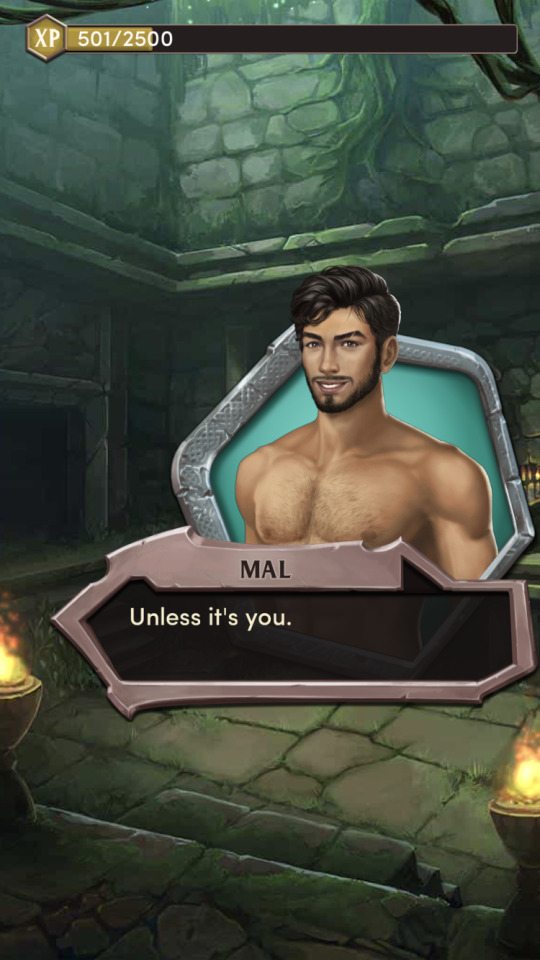
Parallels are paralleling parallelly
59 notes
·
View notes
Text

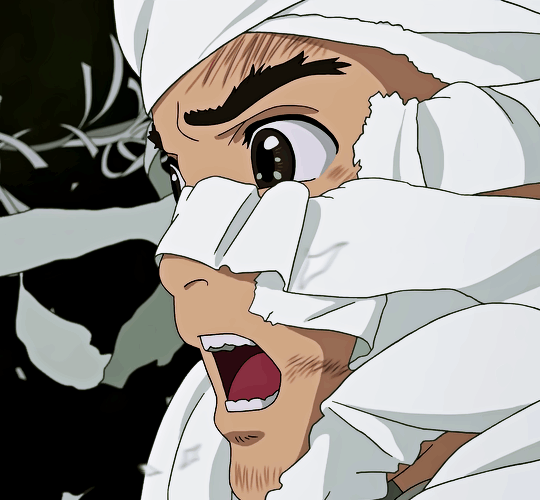
SPIRITED AWAY (2001) dir. Hayao Miyazaki
THE BOY AND THE HERON (2023) dir. Hayao Miyazaki
#spirited away#the boy and the heron#hayao miyazaki#studio ghibli#ghibliedit#dailyanimatedgifs#studioghibliedit#animationsource#worldcinemaedit#animeedit#dailystudioghibli#userparallels#ghiblifilm#filmgifs#kimitachi wa dou ikiru ka#sen to chihiro no kamikakushi#ellisgifs#parallellis
2K notes
·
View notes
Text
Been on an ATLA animated series rewatch lately and the storm episode in S1 ATLA has me STOMPED BC IT NARRATES THE DARKEST MOMENTS OF BOTH ZUKO AND AANG'S LIVES PARALLELLY-
(SORRY I KNOW THIS MAY BE OLD NEWS BUT FOR SOME REASON I THOUGHT THESE WERE SEPERATE EPISODES BUT NO.)
But Oh, the parallel of an airbending boy who ran away from his destiny vs a firebending prince who rushed towards it too soon. With both ending in a tragedy where they were left alone grieving what they've lost..
I believe they're more of the Yin & Yang Duo of the series. (I know ppl associate that with zutara or something but they're more alike than people seem to think 🤔)
#MAN PEOPLE FOCUS ON SHIPPING TOO MUCH IN THIS FANDOM TO CONCENTRATE ON SOME OF THE HEARTBREAKING PARALLELS IN THIS SHOW SOMETIMES.#seriously HOW DID I NOT SEE THESE AT ALL THE LAST TIME I WATCHED IT?#atla#zuko#aang#atla meta#?#??? idk#kay rambles#kay speaks#kay's personal shit#THIS WAS MY FIRST FANDOM. MY ROMAN EMPIRE. I WILL FALL ONLY UPON ITS DEFEAT#atla rewatch#avatar the last airbender
37 notes
·
View notes
Text
so i have been rewatching Last Life (again) and i was thinking in particular about the shadow alliance, the way Martyn and Ren naturally pull back to each other and how they love forming secret little clubs together. but more importantly I was thinking about Etho and how he ended up joining the alliance and Why even though it wasn't an intentional thing i think its kind of perfect in its own little way
see the version of the dynamic of Dogwarts that exists within my head follows that soldier poet king pattern.
Ren is obviously the King, a crown lain in thorn, blood dripping down it, he is a figure head a leader and someone to rally behind leading the troops into battle, the first one to lead the charge.
Martyn is obviously a poet, he often describes himself as the bard within dogwards, his weapons are his words, he tricks and lies and soothes things over, he inspires his allies and often comes up with the strategies they use.
and Etho in my eyes is Dogwarts Soldier. Etho is their longest ally becoming a member right at the start when Ren showed the Secret stache and remaining Loyal to Dogwarts right up to the final battle dying alongside his king, and he is there for most major ups and downs of the Dogwarts' Red Army up and to dying in their final battle.
so what does this have to do with Last Life? well it relates to the repetition of reoccurring concepts that keep coming back within life series.
and in my head it feels kind of perfect that Martyn Ren and Etho end up becoming a team again. it may not be the same series but the Red Army never broke up and that alliance still holds some water over their character.
this isn't one of those "major Reoccurring concepts" IE the flower husbands Crumbs or Canary Curse but its a minor small one that comes back occasionally. in limited Life Martyn was very close to those people in TIES. 3/4 of TIES Members were former Dogwarts/Red Army Alumni. at the end he even made a (short lived) alliance with Impulse Tango and Etho at the end and the only one to not Trust Martyn is Tango, the only Member to not be a member of the Red Army.
The Fact that Etho and Skizz; the Two most Loyal Red army Members (aside from Martyn and Ren), who died for their cause are the ones that need to play the consenting Victim, and the unwilling Executioner feels way too parallelly to me. and not only that Martyn that season also did a Consenting Kill for Scott (who came through an nether portal WEARING A FUCKING CROWN!!!!). like i know these are coincidences but like... the parallels are too strong.
#life series#limited life#traffic smp#traffic series#trafficblr#limlsmp#traffic life series#3rd life#3rd life smp#limitedlife#last life#life smp#renchantyn#renchanting duo#dogwarts
117 notes
·
View notes
Text

Chapter III. Economic Evolutions. — First Period. — The Division of Labor.
1. — Antagonistic effects of the principle of division.
All men are equal in the state of primitive communism, equal in their nakedness and ignorance, equal in the indefinite power of their faculties. The economists generally look at only the first of these aspects; they neglect or overlook the second. Nevertheless, according to the profoundest philosophers of modern times, La Rochefoucault, Helvetius, Kant, Fichte, Hegel, Jacotot, intelligence differs in individuals only qualitatively, each having thereby his own specialty or genius; in its essence, — namely, judgment, — it is quantitatively equal in all. Hence it follows that, a little sooner or a little later, according as circumstances shall be more or less favorable, general progress must lead all men from original and negative equality to a positive equivalence of talents and acquirements.
I insist upon this precious datum of psychology, the necessary consequence of which is that the hierarchy of capacities henceforth cannot be allowed as a principle and law of organization: equality alone is our rule, as it is also our ideal. Then, just as the equality of misery must change gradually into equality of well-being, as we have proved by the theory of value, so the equality of minds, negative in the beginning, since it represents only emptiness, must reappear in a positive form at the completion of humanity’s education. The intellectual movement proceeds parallelly with the economic movement; they are the expression, the translation, of each other; psychology and social economy are in accord, or rather, they but unroll the same history, each from a different point of view. This appears especially in Smith’s great law, the division of labor.
Considered in its essence, the division of labor is the way in which equality of condition and intelligence is realized. Through diversity of function, it gives rise to proportionality of products and equilibrium in exchange, and consequently opens for us the road to wealth; as also, in showing us infinity everywhere in art and Nature, it leads us to idealize our acts, and makes the creative mind — that is, divinity itself, mentem diviniorem — immanent and perceptible in all laborers.
Division of labor, then, is the first phase of economic evolution as well as of intellectual development: our point of departure is true as regards both man and things, and the progress of our exposition is in no wise arbitrary.
But, at this solemn hour of the division of labor, tempestuous winds begin to blow upon humanity. Progress does not improve the condition of all equally and uniformly, although in the end it must include and transfigure every intelligent and industrious being. It commences by taking possession of a small number of privileged persons, who thus compose the elite of nations, while the mass continues, or even buries itself deeper, in barbarism. It is this exception of persons on the part of progress which has perpetuated the belief in the natural and providential inequality of conditions, engendered caste, and given an hierarchical form to all societies. It has not been understood that all inequality, never being more than a negation, carries in itself the proof of its illegitimacy and the announcement of its downfall: much less still has it been imagined that this same inequality proceeds accidentally from a cause the ulterior effect of which must be its entire disappearance.
Thus, the antinomy of value reappearing in the law of division, it is found that the first and most potent instrument of knowledge and wealth which Providence has placed in our hands has become for us an instrument of misery and imbecility. Here is the formula of this new law of antagonism, to which we owe the two oldest maladies of civilization, aristocracy and the proletariat: Labor, in dividing itself according to the law which is peculiar to it, and which is the primary condition of its productivity, ends in the frustration of its own objects, and destroys itself, in other words: Division, in the absence of which there is no progress, no wealth, no equality, subordinates the workingman, and renders intelligence useless, wealth harmful, and equality impossible.
All the economists, since Adam Smith, have pointed out the advantages and the inconveniences of the law of division, but at the same time insisting much more strenuously upon the first than the second, because such a course was more in harmony with their optimistic views, and not one of them ever asking how a law can have inconveniences. This is the way in which J. B. Say summed up the question: —
“A man who during his whole life performs but one operation, certainly acquires the power to execute it better and more readily than another; but at the same time he becomes less capable of any other occupation, whether physical or moral; his other faculties become extinct, and there results a degeneracy in the individual man. That one has made only the eighteenth part of a pin is a sad account to give of one’s self: but let no one imagine that it is the workingman who spends his life in handling a file or a hammer that alone degenerates in this way from the dignity of his nature; it is the same with the man whose position leads him to exercise the most subtle faculties of his mind... On the whole, it may be said that the separation of tasks is an advantageous use of human forces; that it increases enormously the products of society; but that it takes something from the capacity of each man taken individually.” [11]
What, then, after labor, is the primary cause of the multiplication of wealth and the skill of laborers? Division.
What is the primary cause of intellectual degeneracy and, as we shall show continually, civilized misery? Division.
How does the same principle, rigorously followed to its conclusions, lead to effects diametrically opposite? There is not an economist, either before or since Adam Smith, who has even perceived that here is a problem to be solved. Say goes so far as to recognize that in the division of labor the same cause which produces the good engenders the evil; then, after a few words of pity for the victims of the separation of industries, content with having given an impartial and faithful exhibition of the facts, he leaves the matter there. “You know,” he seems to say, “that the more we divide the workmen’s tasks, the more we increase the productive power of labor; but at the same time the more does labor, gradually reducing itself to a mechanical operation, stupefy intelligence.”
In vain do we express our indignation against a theory which, creating by labor itself an aristocracy of capacities, leads inevitably to political inequality; in vain do we protest in the name of democracy and progress that in the future there will be no nobility, no bourgeoisie no pariahs. The economist replies, with the impassibility of destiny: You are condemned to produce much, and to produce cheaply; otherwise your industry will be always insignificant, your commerce will amount to nothing, and you will drag in the rear of civilization instead of taking the lead. — What! among us, generous men, there are some predestined to brutishness; and the more perfect our industry becomes, the larger will grow the number of our accursed brothers!..... — Alas!..... That is the last word of the economist.
We cannot fail to recognize in the division of labor, as a general fact and as a cause, all the characteristics of a LAW; but as this law governs two orders of phenomena radically opposite and destructive of each other, it must be confessed also that this law is of a sort unknown in the exact sciences, — that it is, strange to say, a contradictory law, a counter-law an antinomy. Let us add, in anticipation, that such appears to be the identifying feature of social economy, and consequently of philosophy.
Now, without a RECOMPOSITION of labor which shall obviate the inconveniences of division while preserving its useful effects, the contradiction inherent in the principle is irremediable. It is necessary, — following the style of the Jewish priests, plotting the death of Christ, — it is necessary that the poor should perish to secure the proprietor his for tune, expedit unum hominem pro populo mori. I am going to demonstrate the necessity of this decree; after which, if the parcellaire laborer still retains a glimmer of intelligence, he will console himself with the thought that he dies according to the rules of political economy.
Labor, which ought to give scope to the conscience and render it more and more worthy of happiness, leading through parcellaire division to prostration of mind, dwarfs man in his noblest part, minorat capitis, and throws him back into animality. Thenceforth the fallen man labors as a brute, and consequently must be treated as a brute. This sentence of Nature and necessity society will execute.
The first effect of parcellaire labor, after the depravation of the mind, is the lengthening of the hours of labor, which increase in inverse proportion to the amount of intelligence expended. For, the product increasing in quantity and quality at once, if, by any industrial improvement whatever, labor is lightened in one way, it must pay for it in another. But as the length of the working-day cannot exceed from sixteen to eighteen hours, when compensation no longer can be made in time, it will be taken from the price, and wages will decrease. And this decrease will take place, not, as has been foolishly imagined, because value is essentially arbitrary, but because it is essentially determinable. Little matters it that the struggle between supply and demand ends, now to the advantage of the employer, now to the benefit of the employee; such oscillations may vary in amplitude, this depending on well-known accessory circumstances which have been estimated a thousand times. The certain point, and the only one for us to notice now, is that the universal conscience does not set the same price upon the labor of an overseer and the work of a hod-carrier. A reduction in the price of the day’s work, then, is necessary: so that the laborer, after having been afflicted in mind by a degrading function, cannot fail to be struck also in his body by the meagreness of his reward. This is the literal application of the words of the Gospel: He that hath not, from him shall be taken even that which he hath.
There is in economic accidents a pitiless reason which laughs at religion and equity as political aphorisms, and which renders man happy or unhappy according as he obeys or escapes the prescriptions of destiny. Certainly this is far from that Christian charity with which so many honorable writers today are inspired, and which, penetrating to the heart of the bourgeoisie, endeavors to temper the rigors of the law by numerous religious institutions. Political economy knows only justice, justice as inflexible and unyielding as the miser’s purse; and it is because political economy is the effect of social spontaneity and the expression of the divine will that I have been able to say: God is man’s adversary, and Providence a misanthrope. God makes us pay, in weight of blood and measure of tears, for each of our lessons; and to complete the evil, we, in our relations with our fellows, all act like him. Where, then, is this love of the celestial father for his creatures? Where is human fraternity?
Can he do otherwise? say the theists. Man falling, the animal remains: how could the Creator recognize in him his own image? And what plainer than that he treats him then as a beast of burden? But the trial will not last for ever, and sooner or later labor, having been particularized, will be synthetized.
Such is the ordinary argument of all those who seek to justify Providence, but generally succeed only in lending new weapons to atheism. That is to say, then, that God would have envied us, for six thousand years, an idea which would have saved millions of victims, a distribution of labor at once special and synthetic! In return, he has given us, through his servants Moses, Buddha, Zoroaster, Mahomet, etc., those insipid writings, the disgrace of our reason, which have killed more men than they contain letters! Further, if we must believe primitive revelation, social economy was the cursed science, the fruit of the tree reserved for God, which man was forbidden to touch! Why this religious depreciation of labor, if it is true, as economic science already shows, that labor is the father of love and the organ of happiness? Why this jealousy of our advancement? But if, as now sufficiently appears, our progress depends upon ourselves alone, of what use is it to adore this phantom of divinity, and what does he still ask of us through the multitude of inspired persons who pursue us with their sermons? All of you, Christians, protestant and orthodox, neo-revelators, charlatans and dupes, listen to the first verse of the humanitarian hymn upon God’s mercy: “In proportion as the principle of division of labor receives complete application, the worker becomes weaker, narrower, and more dependent. Art advances: the artisan recedes!” [12]
Then let us guard against anticipating conclusions and prejudging the latest revelation of experience. At present God seems less favorable than hostile: let us confine ourselves to establishing the fact.
Just as political economy, then, at its point of departure, has made us understand these mysterious and dismal words: In proportion as the production of utility increases, venality decreases; so arrived at its first station, it warns us in a terrible voice: In proportion as art advances, the artisan recedes. To fix the ideas better, let us cite a few examples.
In all the branches of metal-working, who are the least industrious of the wage-laborers? Precisely those who are called machinists. Since tools have been so admirably perfected, a machinist is simply a man who knows how to handle a file or a plane: as for mechanics, that is the business of engineers and foremen. A country blacksmith often unites in his own person, by the very necessity of his position, the various talents of the locksmith, the edge-tool maker, the gunsmith, the machinist, the wheel-wright, and the horse-doctor: the world of thought would be astonished at the knowledge that is under the hammer of this man, whom the people, always inclined to jest, nickname brule-fer. A workingman of Creuzot, who for ten years has seen the grandest and finest that his profession can offer, on leaving his shop, finds himself unable to render the slightest service or to earn his living. The incapacity of the subject is directly proportional to the perfection of the art; and this is as true of all the trades as of metal-working.
The wages of machinists are maintained as yet at a high rate: sooner or later their pay must decrease, the poor quality of the labor being unable to maintain it.
I have just cited a mechanical art; let us now cite a liberal industry.
Would Gutenburg and his industrious companions, Faust and Schoffer, ever have believed that, by the division of labor, their sublime invention would fall into the domain of ignorance — I had almost said idiocy? There are few men so weak-minded, so unlettered, as the mass of workers who follow the various branches of the typographic industry, — compositors, pressmen, type-founders, book-binders, and paper-makers. The printer, as he existed even in the days of the Estiennes, has become almost an abstraction. The employment of women in type-setting has struck this noble industry to the heart, and consummated its degradation. I have seen a female compositor — and she was one of the best — who did not know how to read, and was acquainted only with the forms of the letters. The whole art has been withdrawn into the hands of foremen and proof-readers, modest men of learning whom the impertinence of authors and patrons still humiliates, and a few workmen who are real artists. The press, in a word, fallen into mere mechanism, is no longer, in its personnel, at the level of civilization: soon there will be left of it but a few souvenirs.
I am told that the printers of Paris are endeavoring by association to rise again from their degradation: may their efforts not be exhausted in vain empiricism or misled into barren utopias!
After private industries, let us look at public administration.
In the public service, the effects of parcellaire labor are no less frightful, no less intense: in all the departments of administration, in proportion as the art develops, most of the employees see their salaries diminish. A letter-carrier receives from four hundred to six hundred francs per annum, of which the administration retains about a tenth for the retiring pension. After thirty years of labor, the pension, or rather the restitution, is three hundred francs per annum, which, when given to an alms-house by the pensioner, entitles him to a bed, soup, and washing. My heart bleeds to say it, but I think, nevertheless, that the administration is generous: what reward would you give to a man whose whole function consists in walking? The legend gives but five sous to the Wandering Jew; the letter-carriers receive twenty or thirty; true, the greater part of them have a family. That part of the service which calls into exercise the intellectual faculties is reserved for the postmasters and clerks: these are better paid; they do the work of men.
Everywhere, then, in public service as well as free industry, things are so ordered that nine-tenths of the laborers serve as beasts of burden for the other tenth: such is the inevitable effect of industrial progress and the indispensable condition of all wealth. It is important to look well at this elementary truth before talking to the people of equality, liberty, democratic institutions, and other utopias, the realization of which involves a previous complete revolution in the relations of laborers.
The most remarkable effect of the division of labor is the decay of literature.
In the Middle Ages and in antiquity the man of letters, a sort of encyclopaedic doctor, a successor of the troubadour and the poet, all-knowing, was almighty. Literature lorded it over society with a high hand; kings sought the favor of authors, or revenged themselves for their contempt by burning them, — them and their books. This, too, was a way of recognizing literary sovereignty.
Today we have manufacturers, lawyers, doctors, bankers, merchants, professors, engineers, librarians, etc.; we have no men of letters. Or rather, whoever has risen to a remarkable height in his profession is thereby and of necessity lettered: literature, like the baccalaureate, has become an elementary part of every profession. The man of letters, reduced to his simplest expression, is the public writer, a sort of writing commissioner in the pay of everybody, whose best-known variety is the journalist.
It was a strange idea that occurred to the Chambers four years ago, -that of making a law on literary property! As if henceforth the idea was not to become more and more the all-important point, the style nothing. Thanks to God, there is an end of parliamentary eloquence as of epic poetry and mythology; the theatre rarely attracts business men and savants; and while the connoisseurs are astonished at the decline of art, the philosophic observer sees only the progress of manly reason, troubled rather than rejoiced at these dainty trifles. The interest in romance is sustained only as long as it resembles reality; history is reducing itself to anthropological exegesis; everywhere, indeed, the art of talking well appears as a subordinate auxiliary of the idea, the fact. The worship of speech, too mazy and slow for impatient minds, is neglected, and its artifices are losing daily their power of seduction. The language of the nineteenth century is made up of facts and figures, and he is the most eloquent among us who, with the fewest words, can say the most things. Whoever cannot speak this language is mercilessly relegated to the ranks of the rhetoricians; he is said to have no ideas.
In a young society the progress of letters necessarily outstrips philosophical and industrial progress, and for a long time serves for the expression of both. But there comes a day when thought leaves language in the rear, and when, consequently, the continued preeminence of literature in a society becomes a sure symptom of decline. Language, in fact, is to every people the collection of its native ideas, the encyclopædia which Providence first reveals to it; it is the field which its reason must cultivate before directly attacking Nature through observation and experience. Now, as soon as a nation, after having exhausted the knowledge contained in its vocabulary, instead of pursuing its education by a superior philosophy, wraps itself in its poetic mantle, and begins to play with its periods and its hemistichs, we may safely say that such a society is lost. Everything in it will become subtle, narrow, and false; it will not have even the advantage of maintaining in its splendor the language of which it is foolishly enamored; instead of going forward in the path of the geniuses of transition, the Tacituses, the Thucydides, the Machiavels, and the Montesquieus, it will be seen to fall, with irresistible force, from the majesty of Cicero to the subtleties of Seneca, the antitheses of St. Augustine, and the puns of St. Bernard.
Let no one, then, be deceived: from the moment that the mind, at first entirely occupied with speech, passes to experience and labor, the man of letters, properly speaking, is simply the puny personification of the least of our faculties; and literature, the refuse of intelligent industry, finds a market only with the idlers whom it amuses and the proletaires whom it fascinates, the jugglers who besiege power and the charlatans who shelter themselves behind it, the hierophants of divine right who blow the trumpet of Sinai, and the fanatical proclaimers of the sovereignty of the people, whose few mouth-pieces, compelled to practise their tribunician eloquence from tombs until they can shower it from the height of rostrums, know no better than to give to the public parodies of Gracchus and Demosthenes.
All the powers of society, then, agree in indefinitely deteriorating the condition of the parcellaire laborer; and experience, universally confirming the theory, proves that this worker is condemned to misfortune from his mother’s womb, no political reform, no association of interests, no effort either of public charity or of instruction, having the power to aid him. The various specifics proposed in these latter days, far from being able to cure the evil, would tend rather to inflame it by irritation; and all that has been written on this point has only exhibited in a clear light the vicious circle of political economy.
This we shall demonstrate in a few words.
#organization#revolution#anarchism#daily posts#communism#anti capitalist#anti capitalism#late stage capitalism#anarchy#anarchists#libraries#leftism#social issues#economy#economics#climate change#anarchy works#environmentalism#environment#solarpunk#anti colonialism#mutual aid#the system of economic contradictions#the philosophy of poverty#volume i#pierre-joseph proudhon#pierre joseph proudhon
15 notes
·
View notes
Text
I will NEVER tire of the whole “non-sexual intimacy” thing with Astarion.
Imagine how clingy he gets when he realizes that he can in fact cherish intimacy with you without it necessarily concluding into sex.
This doesn't take anything away from the joy he finds in having his way with you until you're both left breathless and discharged of all energy, but at the same time it's nice to know that there are other ways to be physically close to you that don't revolve around anything sexual.
It's not something you talk about verbally, but simply something that he himself realizes over time. He knows the existence of simple cuddles, yes, but he naturally turns them into something more. It's not something he thinks too much of, he's just... Used to it. He knows no other way.
Until he realizes there's no need to.
You love him no matter what. You always tell him that all you need is to have him near you: while you read, while you sleep, while you do anything.
He understands that sex is simply something additional, a whim: it doesn't have to happen. To make you feel loved, he doesn't need to do that. Parallelly, he doesn't it need to feel loved and appreciated by you.
He can love you without indulging in it.
During this romantic journey of yours, Astarion comes to adore the concept of little things, small gestures: playing with his hair, holding hands, complimenting him when he least expects it, kissing his nose and so much more. He'll melt for a simple caress.
From time to time, he starts to diversify when he wants you on a carnal level and when he wants you on the level of a simple hug, a small caress.
He knows that you love him even if you don't do anything sexual, he knows that you love him because it's him in all his weirdest and most intricate facets. He lulls himself in these thoughts as he cuddles you until you fall asleep against his chest, with your ear resting right there where, behind his rib cage, his dead heart rests.
Once he gets used to all this, he becomes the clingiest person you could ever know. He has your unconditional love, he knows he doesn't have to ask for your attention because he has it regardless — he, a man that never had the occasion to voice his thoughts without being shut down — of course he's going to take it all.
With you, Astarion re-discovers how to love.
#astarion#astarion bg3#baldur's gate 3#bg3#astarion x reader#astarion x tav#astarion x gn reader#astarion x fem reader#astarion x male reader#astarion fluff
1K notes
·
View notes
Note
Skulker headcanons?
-He himself forgets that the exoskeleton is an exoskeleton sometimes, especially when he's tired.
-The reason why he doesn't know that Vlad is a Halfa is because he assumes that Vlad's human form is a disguise. If he found out, he'd take a long break from hunting Danny to re-evaluate his 'ultimate catch'.
-While the "well behaved" creatures he catches are allowed to free roam his island as his pets, most of them are hunted for food, what he, Ember, and his pets don't eat, he preserves and uses as decor/clothes (The latter in his case, is either gifts to Ember or decor with extra steps).
-He's part of a biker gang (it's how he and Ember met) but he likes keeping his bike life and hunting life separate because he *knows* that the more elusive ghosts and Danny can and will ruin his motorcycles if he brings them into the fight.
-Johnny, Kitty, Ember, and him go on double dates sometimes.
-Ember and Skulker are more of a 'parallelly united' couple instead of a 'lovey dovey' couple. They like doing their own things together for the most part.
-He's pretty good at grilling. (Just don't think too hard about the 'meat' you're eating.)
-As a friend, he's the type of person who's not very expressive for the most part but always has your back. We already know what he's like as an enemy; Ruthless and unrelenting.
67 notes
·
View notes
Text
Luci Interacts!
.
.
.
She and Pico can't fucking stand each other. Luci and Pico are like parallelly opposites, if that makes sense. They're nemeses :3 @hellishgayliath
Context! Pico and Luci didn't meet until after the episode "Repo Mantis". Luci was aware of Todd, but hasn't met him in person at this time and was originally going to be the one to get Todd's trailer, until Donnie and Mikey showed up and make a deal with Repo for the Jupiter Jim Moon Buggy. Instead, Luci spends the entire episode with Mrs. Nubbins before Repo gives her a different job to do before Mikey and Donnie come back.
Luci does not like Todd as she believes that he's a manipulative person that uses his kindness to get what he wants. This thought is fueled after Luci meets Todd to try and reposes a different loaned item, and sees the giant puppy rescue he has. She asks about it, and that's how she learns of the events of the episode. This greatly angers Luci and she starts yelling at everything, but not in Todd's face as his kindness still has a bit of an effect on her. (I like to think she's one of the least effected people from Todd's endless kindness, but it still has enough of an effect to where she does the bare minimum in her anger, like not screaming in his face or keeping her insults under her breath) At this point, Pico would probably hear the commotion, and would most likely turn into them yelling at each other before Luci storms off. This would establish their hatred for each other, since Pico is protective of Todd.

And this isn't the push and shove kind of rivalry, no this is full on insulting each other in every other sentence, aggressive glares, and attempted murder :D I'd like to think Pico would learn all vulgar words from her and her bad mouth, that she definitely got from Repo
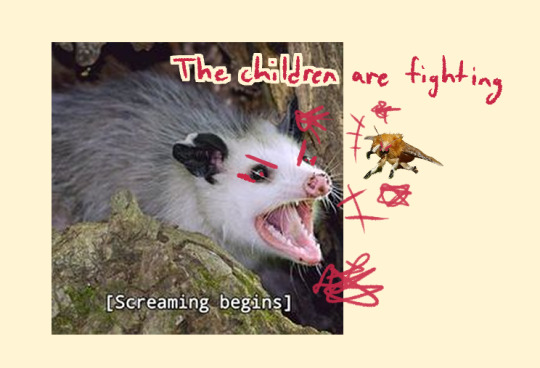
Accurate Representation lol
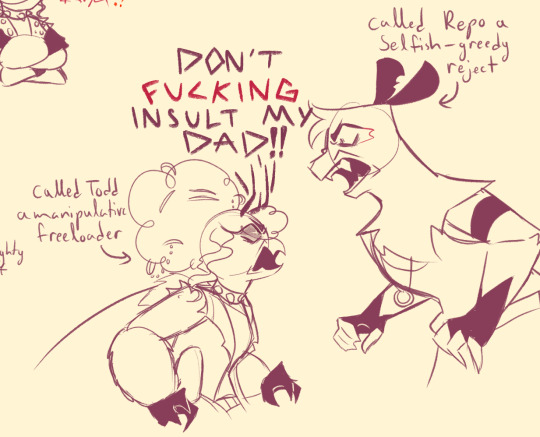
If it's really heated, they'll start to insult each other's dads, but this is a very rare thing. They're both aware of how much they value their parents and don't like going that low. But if one of them does insult the other's dad, well someone is going to walk away with a scar or two.
This is also a time to explain Luci's physical body real quick; so some moths don't eat because they don't have mouths, which is why they don't live very long. I wanted Luci to have a mouth with no teeth to reflect this, as well as to show how little she uses it. She only opens her mouth mainly to yell or scream and only does it when very very angry.
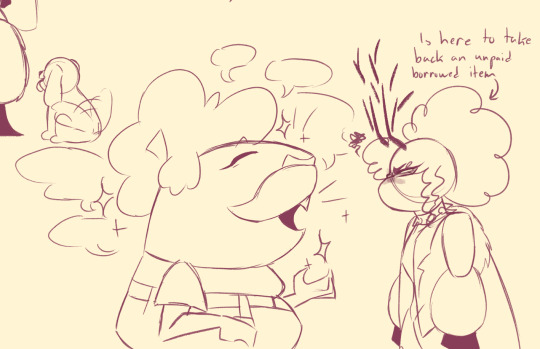
Like mentioned earlier, Luci does not like Todd, finding him annoying and deceiving. Any time his irresistible kindness starts to take effect, she explodes in rage and gets as far away from him as possible. This is also prevents loaned or late paid items from getting repossessed, same end result except it's not because they felt bad or gave Todd more time Luci just gets too frustrated to deal with him.

Luci is also slightly afraid of dogs! Not to where it's a major problem, but she'd like to avoid them or see them at a distance if possible. If it wasn't for her stubbornness and disliking to Todd, she'd avoid Todd and his puppy rescue as much as possible. At most, if there are too many dogs, she'll freeze up for a few minutes before she swiftly leaves. Mrs. Nubbins made her a cat lover, despite this mantis cat trying to kill her at times, and values their chillness and sassiness.
When trying to deal with Todd, they'll converse a little bit away from the puppy rescue because it makes her more comfortable and Todd is considerate, so he'll agree. Of course, Pico isn't far keeping an eye and ear out on their conversations, and I think he'd smile every time Luci gets frustrated and storms off from Todd.
Bao & Luci are actually very chill and casual

Luci isn't always aggressive and explosive; she just seems to be that way, especially to Pico. She mainly acts this way when it deals with Repo's businesses or Todd, which is the only time Pico sees her. Neither of them have seen each other interact with their dads personally or with their companions (Mrs. Nubbins & Miho), so they've only seen each other's nasty side towards each other, of course.
With Bao though, she's more laid back and chill, still sassy though and her vulgar language is less present. She and Bao share gossip, mainly Luci as lots of drama can happen in the junkyard like reality tv lol. Luci discovered Bao's tea shop when in a heated fit and was trying to cool off. She felt almost immediately soothed by the environment, and it became one of her safe places. Bao did not know of Pico and Luci's dynamic and didn't even know Luci was the person Pico would be talking about. Pico would never say her name when talking trash about her, claiming that "she's too nasty and terrible to even say her name". So Bao would see a softer side to Luci that Pico never did see
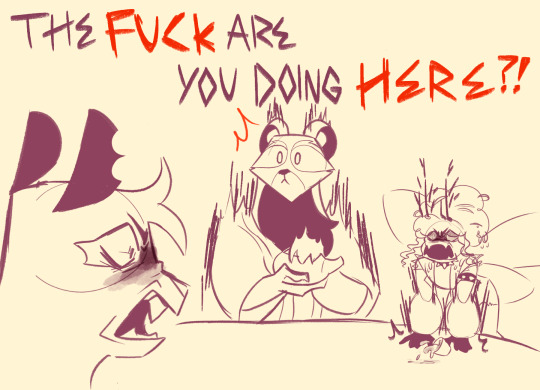
Of course, one of these days they'd run into each other at the tea shop, and it would go something like this lol. Moths are nocturnal, and even though Luci can be up in the morning, she's usually up by noon. And when going places, it's usually the late afternoon or night and it's these times that she goes to the tea shop. I think Pico would be bringing over some dog chow for Momo or gardening stuff a bit later in the day and would see Bao and Luci conversing.
Afterwards, Pico wouldn't understand how he could stand Luci while Bao would probably try to tell him of the Luci he knows, of course Pico wouldn't believe him. Luci wouldn't understand how Bao could date someone like Pico, to where Bao does the same thing, but a bit more serious to show he won't tolerate her insulting their relationship (to which she does not ever).
After this run in, I think Luci wouldn't show up to the tea shop for a while, to where Bao asks if he and Pico could go check up on her and Pico is reluctant to. I think this is where Pico would firstly see Luci's softer side as they'd catch her with Mrs. Nubbins in her cave. Mrs. Nubbins notices their presence, Luci gets angry and embarrassed at being spied on (causing a bit of ripple in her and Bao's friendship), Mrs. Nubbins tries to eat them, Luci progressively tries to stop her, they're all tired, Luci wouldn't say anything except harsh glares and go inside her home. And I'll leave that plot point at that :]

If asked her opinion on Pico it'd go something like:
"UGH! I can't STAND that trash eater! He's annoying, rude, and worst of all, sees that BEAVER as a GOOD GUY!! He even had the NERVE to F***ING insult Boss! He's the WORST! THE WORST!"
#rottmnt oc#luci the moth#they're enemies! one day turned frenemies!#but we're not there yet#wanted to give Pico someone to combat with!#because what's more fun to draw than how characters interact?#especially if they hate each other :D#pico the opossum
25 notes
·
View notes